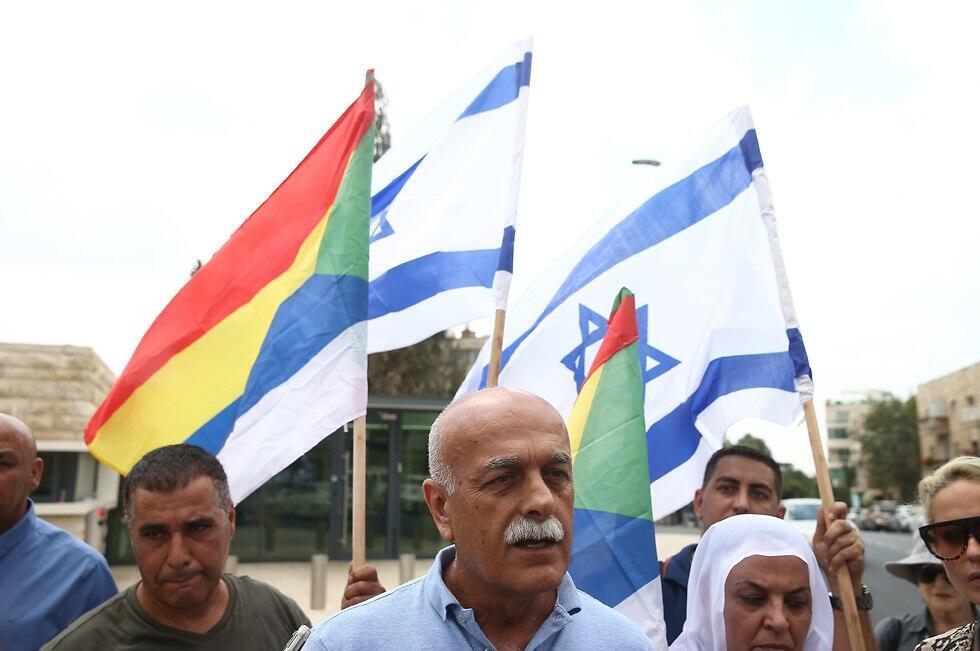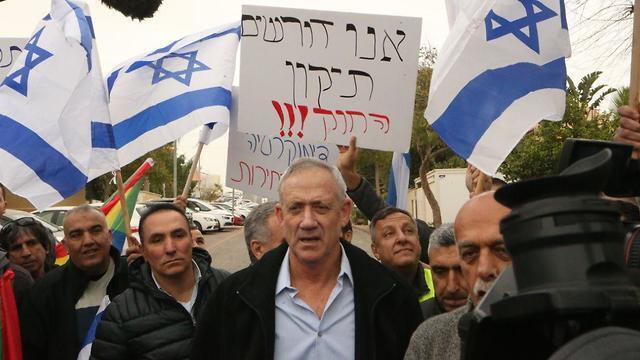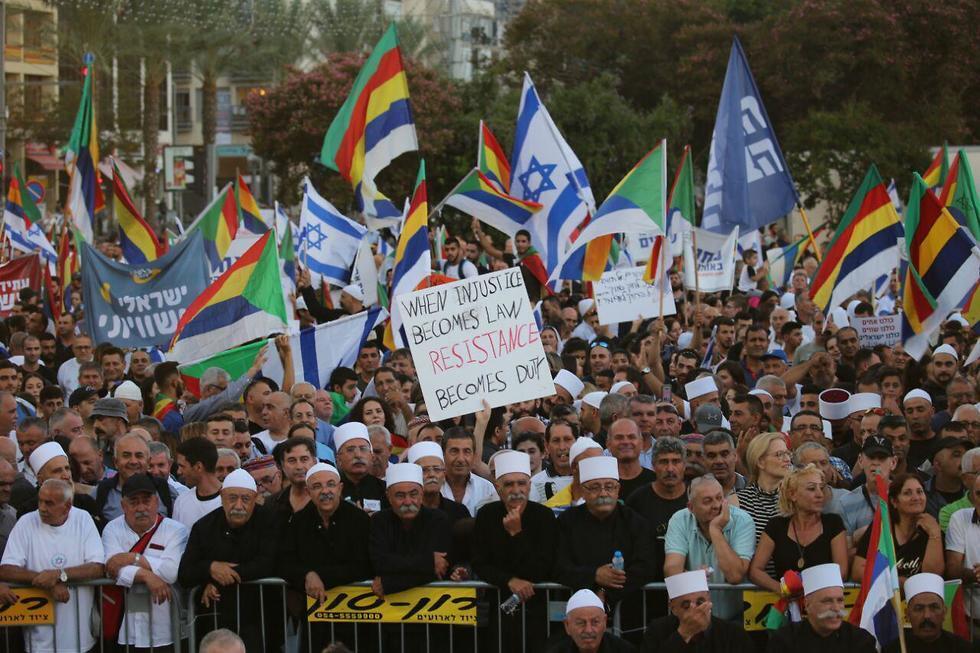Getting your Trinity Audio player ready...
Over half of the Jewish public in Israel either opposes the controversial Nation-State Law or believes it needs to be amended, according to a poll ordered by the campaign to amend the legislation. The law, approved by the Knesset last July, defines Israel as the nation-state of the Jewish people and strips the Arabic language from its status as an official language alongside Hebrew, defining it as a language with "special status."
and Twitter
More than half of respondents (52.7 percent) said that in addition to being a Jewish state, the legislation should recognize Israel is also "a democracy with equal rights to all citizens of the state." About one fifth of the public (22.4%) were against adding this sentence to the law, while 25% didn't have a clear position on the matter.
The survey also showed that 61% of the Jewish public in Israel believe the state's democratic identity should be in line with its Jewish identity.
Furthermore, according to the poll, 75.2% of the Jewish public thinks civil equality should be enshrined in Basic Law; 42.6% think this must be done under the existing Nation-State Law, and that the legislation should be amended to that end, while 32.6% believe civil equality should be enshrined in separate legislation. Only 10% of the public did not think civil equality should be enshrined in law.
Forty percent of respondents said civil equality under the Basic-State Law should apply to all minorities in the state and not just a specific minority, such as the Druze community, which is leading the charge to amend the law.
Only 13% of respondents believe the Nation-State Law does not need to be amended.
The poll, which was conducted by Mano Geva and Dr. Mina Tzemach of the Midgam Institute in conjunction with iPanel, surveyed 509 people over the age of 18, who constitute a representative sample of the adult Jewish population in Israel.
3 View gallery


Brig. Gen. (res). Amal Asad with other protesters outside the President's Residence
(צילום: אוהד צויגנברג)
Brig. Gen. (res). Amal Asad, one of the heads of the campaign to amend the Nation-State Law, said the poll shows that "the Jewish public in Israel also understands the importance of amending the law and the need to safeguard the state's democratic character alongside its Jewish identity.
"As we've said repeatedly before: we do not oppose the Nation-State Law, and we are in favor of defining the state as the nation state of the Jewish people. However, alongside that we must also enshrine civil equality for all citizens in the state, in the spirit of the Declaration of Independence."
Activists from the campaign have been approaching party leaders and other prominent Knesset candidates, demanding them to commit to amend the legislation immediately after the April 9 elections.
The campaign's activists held protests outside Prime Minister Benjamin Netanyahu's Caesarea home and met with Finance Minister Moshe Kahlon and Justice Minister Ayelet Shaked to discuss the matter.
3 View gallery


Benny Gantz talks to protesters against the Nation-State Law outside his home
(צילום: מוטי קמחי)
The protesters received statements of support from Israel Resilience Party leader and former IDF chief Benny Gantz, Yesh Atid leader Yair Lapid, Labor Party leader Avi Gabbay, Gesher Party leader Orly Levy-Abekasis, Hatnua Party leader Tzipi Livni, Telem Party leader Moshe Ya'alon and Achi Israeli Party head Adina Bar-Shalom.


